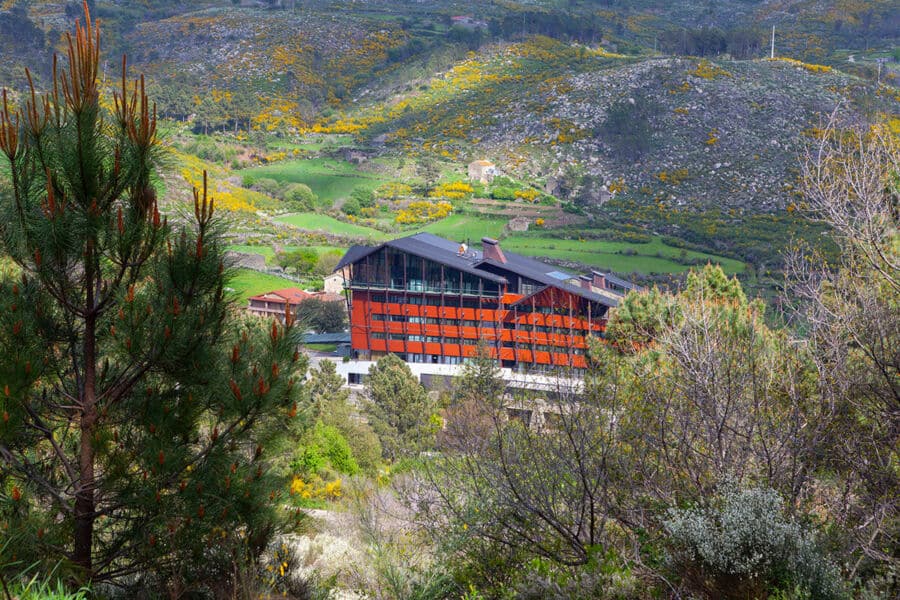Hotels particularly call for ‘recovery plan’, underlining “none of this needed to have happened…”
As tourism and hoteliers in Serra da Estrela suffer a wave of cancellations as a result of this month’s devastating wildfire, criticism has again honed in on ‘serious mistakes in firefighting strategy’.
Talking to Expresso for an article on the ravages inflicted on local tourism, hotel chief Luís Veiga stressed “it is difficult to accept, but there are guilty parties in this tragedy that descended on Serra da Estrela, destroying 20% of its natural park which is a reference in Portugal. This should not have happened”, he echoed the words of local mayors early on in the inferno, stressing “the total disregard of Civil Protection, where there are guilty parties who should be condemned for negligence”.
If the fire had been controlled in the initial phase on August 6 “it would not have reached Manteigas”, he told the paper: almost word-for-word the summary from Manteigas mayor Flávio Massano who explained dirt-roads between municipalities were not fully taken advantage of.
“Everything is run from Lisbon – starting with Civil Protection, and the lack of regionalisation which culminated in this situation…” Veiga continued.
Thus now the knock-on effect of almost 12 days of firefighting – and endless negative press coverage.
Luck would have it that none of the hotels in the area actually suffered damage – but the Serra is a shadow of that natural paradise that attracts thousands of holidaymakers from all over the world come every year.
This is the ‘great concern’ within the hospitality sector right now: there has to be a rapid recovery plan put into action, or the destination will simply lose traction in the medium term – and businesses and the local economy will suffer.
Explains Veiga, CEO of IMB Natura Hotels, the largest hotel operator in the Serra da Estrela region, cancellations began as soon as the fire started.
“Around 15% of reservations were cancelled by people who were coming to visit the Serra and now won’t be, by people with health or respiratory problems, and by those who simply felt the destination was unsafe…” he said.
Holiday rentals businesses (Alojamento Local) have also been affected. “And now it is going to get worse”, he believes. People are going to stop looking at the Serra as a holiday destination, particularly as so much in the way of rural areas and forests have been “completely burnt. It’s no longer attractive to come here…”
Gonçalo Rebelo de Almeida of the Vila Galé group backs Veiga up, attesting to cancellations and concerns as well.
Pedro Machado, president of Turismo Centro de Portugal, believes this is the moment for all those affected to push for a proper strategy for the interior.
“Our region has always been a martyr when it comes to forest fires”, he told Expresso. Now with such massive losses to biodiversity, central Portugal risks losing the habitual flow of tourists from destinations like the United States and UK – visitors who really appreciate Serra da Estrela’s natural bounty.
Pedro Machado believes a recovery plan must come in various phases: first, there has to be “urgency to guarantee there is no further destruction” (meaning, no further reignitions…”; second, the impacts of this fire have to be properly evaluated and from there, third, must come a ‘strategy of communication’ to ensure the image of destruction that has been projected to foreign markets is ‘overcome’.
Then, the work has to start on “an active plan to recover the natural park” and a strategy “to enhance the interior, with a management plan for Serra da Estrela, involving the prime minister himself, instead of (the habitual) crying over spilled milk”.
Ironically, as Serra da Estrela burned the UK Telegraph was encouraging its readers to “skip the coast and head for the mountains”. Travel writer Mary Lussiana wrote a wonderfully upbeat text on the charm of Serra da Estrela, which she described as mountains “somewhat lost in time”. This description has now taken on another kind of meaning which hoteliers are desperate to reverse.




















